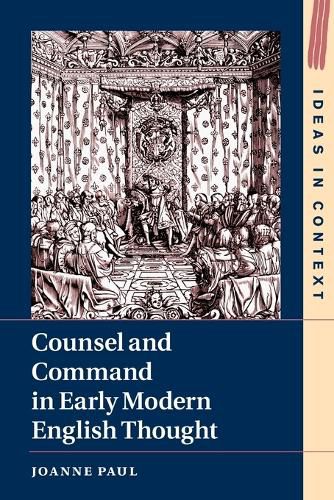Readings Newsletter
Become a Readings Member to make your shopping experience even easier.
Sign in or sign up for free!
You’re not far away from qualifying for FREE standard shipping within Australia
You’ve qualified for FREE standard shipping within Australia
The cart is loading…






While it has often been recognised that counsel formed an essential part of the political discourse in early modern England, the precise role that it occupied in the development of political thinking has remained obscure. This comprehensive and rigorous study of early modern English political counsel establishes the importance of the relationship between political counsel and the discourse of sovereignty. Tracing the changes and evolution of writings on political counsel during the ‘monarchy of counsel’, from the end of the Wars of the Roses to the end of the English Civil War, Joanne Paul examines English thought in its domestic and transnational context, providing an original account of the relationship between counsel and emerging conceptions of sovereignty. Formed at the conjunction of the history of political thought and English political history, this book grounds textual analysis within the context of court politics, intellectual and patronage networks, and diplomacy.
$9.00 standard shipping within Australia
FREE standard shipping within Australia for orders over $100.00
Express & International shipping calculated at checkout
While it has often been recognised that counsel formed an essential part of the political discourse in early modern England, the precise role that it occupied in the development of political thinking has remained obscure. This comprehensive and rigorous study of early modern English political counsel establishes the importance of the relationship between political counsel and the discourse of sovereignty. Tracing the changes and evolution of writings on political counsel during the ‘monarchy of counsel’, from the end of the Wars of the Roses to the end of the English Civil War, Joanne Paul examines English thought in its domestic and transnational context, providing an original account of the relationship between counsel and emerging conceptions of sovereignty. Formed at the conjunction of the history of political thought and English political history, this book grounds textual analysis within the context of court politics, intellectual and patronage networks, and diplomacy.